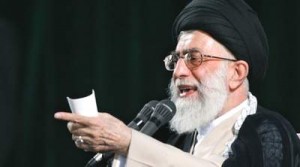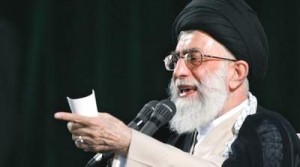Gulf News
Joseph A. Kechichian
- There is now a reformist/moderate conservative bloc in
parliament and a significant change within the Assembly of Experts that may pick the next supreme leader
 No matter how unpalatable hard-line clerics may be in their skewed visions for Iran, few denied the reality that they kept power and pushed so-called reformists back, even if many fell for the “elections” hoopla that produced tangential results.
No matter how unpalatable hard-line clerics may be in their skewed visions for Iran, few denied the reality that they kept power and pushed so-called reformists back, even if many fell for the “elections” hoopla that produced tangential results.
On February 26, 2016, and for the first time, two bodies were “elected” simultaneously, for parliament as well as the Assembly of Experts. Interestingly, and while nearly 55 million registered voters were eligible to participate, 62 per cent bothered with the process. Many hoped that the so-called reformist victory will open a new chapter and, under the circumstances, it was fair to ask whether Tehran would now adopt policies that would be different from its time-tested preferences.
Iranians and their backers, including Hezbollah in Lebanon, pride themselves that free elections are regularly held in Iran where the Guardian Council of the Constitution [Shora-ye Negahban-e Qanun-e Assassi] supervises a rather complex mechanism that keeps undesirable elements out of the process. The 12-member council, which is composed of six presumably qualified jurists selected by the supreme leader, incorporates six other legal experts elected by parliament. In turn, the Council approves candidates who may run for office, which means that critics of the revolution can be easily excluded for any number of reasons.
In 2016, the Guardian Council confirmed 6,229 of 12,123 candidates to run in the parliamentary elections that just ended, which meant that reform-minded candidates were prevented from running for office.
The selection criteria for the Assembly of Experts (Majlis-e Khobregan-e Rahbari) was even worse.
Because it is this group that supervises the Iranian supreme leader’s activities, and given the fact that the 88-member deliberative body — who are directly elected by public vote for eight-year terms — yield so much power, it was mind-boggling to note that nearly 80 per cent of candidates who applied for the Assembly were disqualified. Including every female candidate and, the icing on the cake, Hassan Khomeini, a grandson of Ayatollah Khomeini.
Consistently disqualifying candidates has become something of a speciality in Iran, though it should be clear to one and all that none of this cuts the “elections” mustard and we should simply have the intellectual honesty to identify Iranian elections for what they really are: Leadership selections. After all, the supreme leader selects first and then asks voters to elect from among those who were already selected. As an astute observer concluded, “elections and institutions [in Iran] are meant to be, to a certain degree, a controlled political breathing space”, not anything that resembles free choice in the true sense of the word.
Be that as it may, Supreme Leader Ayatollah Ali Khamenei has now lost two of his most trusted lieutenants within the Assembly, including its current nominal chief Mohammad Yazdi along with the equally hard-line Mohammad-Taqi Mesbah-Yazdi, both of whom were defeated in their reelection bids. As a result, only one major hardline figure is left on the Assembly, Ahmad Jannati, who also heads the Guardian Council that purged reform candidates from the general ballot. Former president Ali Hashemi Rafsanjani and current President Hassan Rouhani won their seats after backroom deals with several conservative figures to secure a small majority in both bodies, which illustrated how real politics worked in Iran.
As a result, we now have a reformist/moderate conservative bloc in power within parliament (even if the results of another 59 seats will only be decided in run-off elections next April or May) and, perhaps far more important, a significant change within the Assembly of Experts that may pick the next supreme leader.
Wishful thinking
It is critical to note what did not change: the powers of the Iranian Revolutionary Guard Corps (IRGC). That’s the real locus of power no matter other claims. In fact, economists who study the country concluded some time ago that the IRGC dominated the Iranian economy, including the oil sector and all heavy industries, and few believe that dramatic changes will be recorded at that level. With a more or less intact financial might, the IRGC leadership will not usher in any kind of changes or alter its regional behaviour, no matter the wishful thinking in foreign capitals.
Equally important is the level of trust many Iranians presumably have in so-called reformists. To be sure, some may be looking to activist candidates who might save Iran and allow its people to grow and prosper, though others prefer costly adventures. Most are aware that clerics — conservatives or liberals, radicals or moderates, or any number of such labels that are frequently used in political science terminology — are, at the end of the day propagators of a theocratic state.
Still, while most Iranians hunger for genuine change, it is eminently fair to ask whether they will get any in this, or any, theocratic state.



